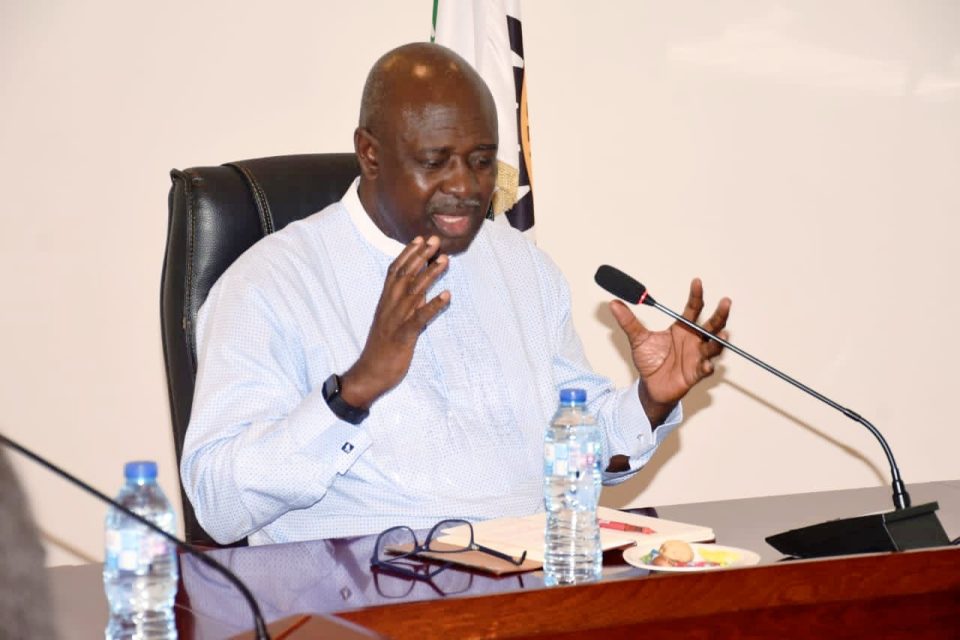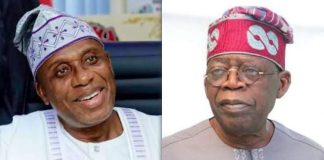🌿 Ruzu Non-Alcoholic Herbal Bitters
Ruzu Non-Alcoholic Herbal Bitters is a natural health supplement specially formulated to:
- ✅ Promote general wellness
- ✅ Detoxify the body
- ✅ Support the treatment of various ailments
Made from a powerful blend of 100% organic and medicinal herbs, Ruzu is completely alcohol-free, making it ideal for:
- 👪 All age groups
- 🌱 Health-conscious individuals
- 🌿 Anyone seeking non-alcoholic herbal remedies
Whether you're looking to boost your vitality, cleanse your system, or support healing the natural way, Ruzu Bitters offers a trusted herbal solution.
Nigeria has reaffirmed its dedication to developing an open, secure, and investor-friendly petroleum industry.
In a keynote speech at Africa Energy Week in Cape Town, South Africa, Senator Heineken Lokpobiri, Minister of State for Petroleum Resources (Oil), made the pledge on behalf of President Bola Ahmed Tinubu.
Nigeria is “open for business,” he said, and actively pursuing policies that put an emphasis on long-term growth, efficiency, and investment in the oil industry.
He emphasized that this meeting is more than simply a conference and that it is a call to action, stating that Nigeria is prepared to lead African reform and development in addition to taking part in the global energy market.
In a statement signed by his Special Adviser on Media and Communication, Nneamaka Okafor, Senator Lokpobiri described the bold policy measures put in place under President Tinubu’s administration, especially the Petroleum Industry Act (PIA), which gives investors a clear and predictable fiscal and regulatory environment.
A fair contractual structure, enhanced regulatory supervision, host community involvement, and license transparency have all been made possible by the PIA, he said.
“The legal, regulatory, financial, and structural transformation we are delivering is what makes Nigeria different today,” the Minister stated.
There are indications that Nigeria’s upstream industry is recovering well. Since its inception in October 2024, the “Project One Million Barrels” effort has increased daily crude oil output to 1.7 to 1.83 million barrels per day, with a substantial rise of 300,000 barrels per day in July 2025 alone. Additionally, by July 2025, there were 50 active drilling rigs, up from 31 in January, which is a definite indication that changes are generating value in the industry.
Notable were the recent asset sales by International Oil Companies (IOCs), which, according to the Minister, have opened up more than $5.5 billion in FIDs in a matter of months.
According to him, “these are not merely transfers of assets; they are transfers of confidence, capability, and ownership.” About 200,000 barrels per day have already been added to the nation’s production as a result of the divestitures.
Sen. Lokpobiri urged Africa to concentrate on infrastructure, industrial development, and localized value chains in order to preserve more value from its hydrocarbon resources.
Africa spends more than $120 billion a year on hydrocarbons, mostly from imports, he said, describing this as a lost chance for economic change.
He argued for increased intra-African cooperation and funding, pointing out that Africa had around $4 trillion in domestic resources, including insurance and pension funds. He stated that the focus now is on how to direct the monies into profitable ventures on our continent rather than whether they are readily available.
Speaking about the global energy conversation, the Minister urged equity and balance.
The narrative needs to change, he maintained, to focus on a varied energy mix rather than the depletion of any resource. “The availability, affordability, and accessibility of all forms of energy should be the main focus,” he emphasized.
He stated unequivocally that Nigeria, like other countries, will continue to appropriately use its oil resources while developing a sustainable and diverse energy base.
Senator Lokpobiri reiterated Nigeria’s position as Africa’s top energy player.
“We are providing ample opportunities, consistent reform, clear incentives, respectful local participation, and a modernizing vision with a purpose,” he said.
“Come to Nigeria,” he said directly to international investors. Participate in the energy revolution.
With robust reforms, aggressive goals, and an open-door policy, Nigeria is paving the way for Africa’s energy future.
















